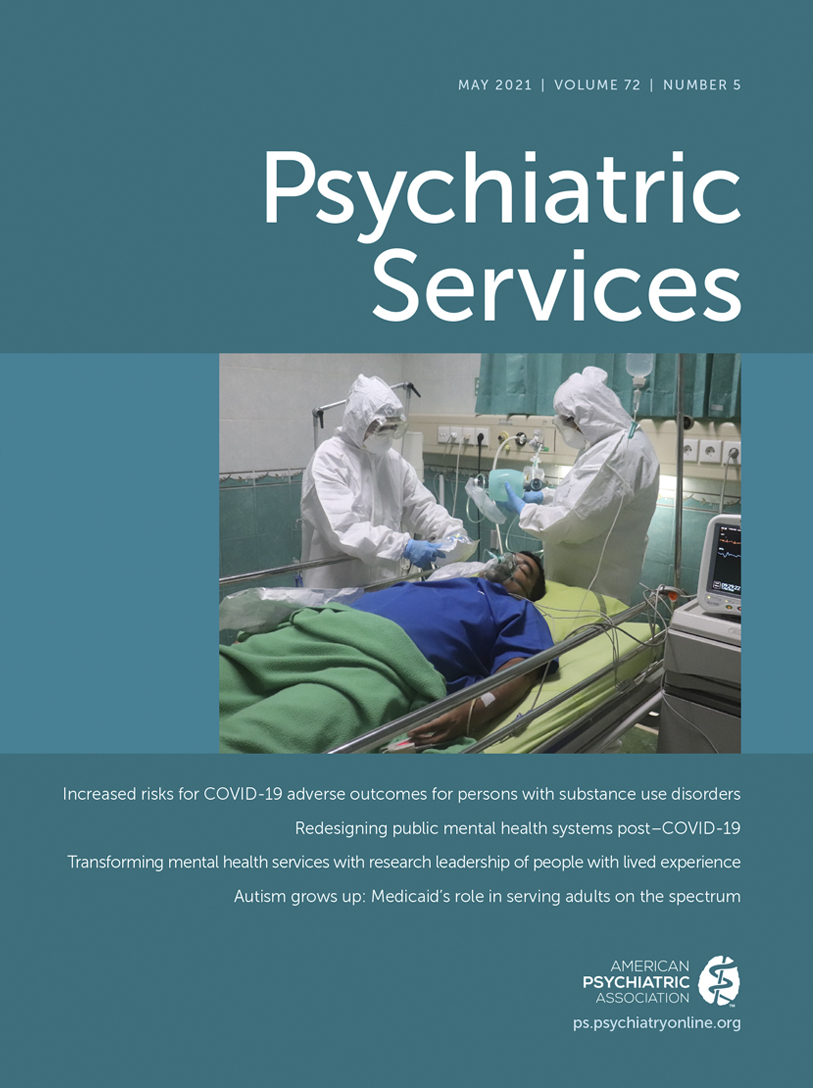Elimination of Routine Screening Laboratory Tests for Psychiatric Admission
TO THE EDITOR: We read with great interest Zwank et al.’s (1) quality improvement project on laboratory screening for inpatient psychiatry admissions. As residents completing their majority of psychiatry admissions at two Columbia University affiliates—New York–Presbyterian Hospital and the New York State Psychiatric Institute—we discuss this issue frequently. We were excited to see the study results showing no notable adverse medical outcomes, including inpatient medicine consultations and transfer to hospital medicine, between pre- and postintervention cohorts. This said, we have three concerns with the data as presented.
We regularly encounter patients who, after initially presenting with no apparent medical pathology and being slated for psychiatry admission, ultimately require medical attention up to and including m0edical admission based on our emergency department’s routine psychiatry screening panel (which includes complete blood count, basic metabolic panel, liver function tests, thyroid-stimulating hormone test, B12 and folate analysis, urine pregnancy test, urine toxicology, COVID-19 PCR, and electrocardiogram [ECG]). These acute medical conditions have included hyper- and hypothyroidism, hyper- and hypokalemia, hypophosphatemia, hyponatremia, hepatitis, rhabdomyolysis, and a variety of ECG abnormalities. In a study by Bartsch et al. (2), during which a comprehensive medical screening was completed on 175 psychiatry outpatients, 46% of patients had lab test results that required additional medical attention, and 20% had a previously undiagnosed medical problem. Admission is a unique opportunity to medically screen patients who might otherwise not receive routine medical care. Moreover, practically speaking, ECGs and routine lab tests are nearly always obtained during hospitalization for routine monitoring, particularly when treating patients with mood stabilizers and antipsychotics. Obtaining baseline lab tests is arguably a standard of care in order to assess whether the medications initiated and titrated are causing adverse effects. Therefore, our first concern is how the authors might respond to the inherent question of medical risk associated with admitting and treating patients with psychoactive medications known to have a variety of drug-drug interactions and side effects when there is little knowledge of the patients’ underlying chemistries and bodily functioning.
Our second inquiry pertains to the authors’ statistical analyses. The authors state that, because lab test and lab charges statistics were not normally distributed, medians rather than means better represent these data. In order to appreciate the quantitative impact of the screening policy change at the cohort level, we wonder whether means might still have been more appropriate here. Were means for these variables not significant between pre- and postintervention cohorts? Did a minority of patients pre- and postintervention account for a disproportionate number of tests and costs in warranted medical work-ups?
Third, we ask whether a more appropriate article title, in describing an institutional shift in laboratory screening, could have incorporated different terminology (i.e., “Adoption of Tailored Screening Laboratory Tests”). As the authors state, “a change in policy was made from routine ordering of laboratory tests to ordering based on individual patient evaluations” (1). To the reader, this implies a reconsideration, rather than a complete elimination, of routine screening.
We thank the authors for completing this project and for bringing attention to the important, daily dilemma of medical care for psychiatric patients.
1 : Elimination of routine screening laboratory tests for psychiatric admission: a quality improvement initiative . Psychiatr Serv 2020 ; 71 : 1252 – 1259 Link, Google Scholar
2 : Screening CMHC outpatients for physical illness . Hosp Community Psychiatry 1990 ; 41 : 786 – 790 Abstract, Google Scholar



